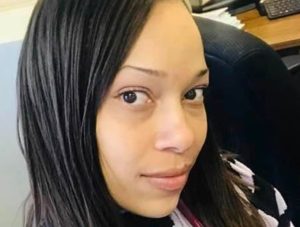
Albany Must Make Medical Cannabis More Affordable & Accessible to Help Patients Like Me
In 2006, I was diagnosed with the autoimmune disease Sarcoidosis, which causes growths to develop on soft tissue throughout the body – most often in the lungs.
This grim disease stripped me of any quality of life, leaving me short of breath, in constant pain, and nearly immobile. I was treated with steroids, chemotherapy, and increasingly stronger doses of opioids, but nothing worked.
Close church friends and clergy suggested medical cannabis. I was skeptical, but after doing some research, I was willing to give it a try.
In just 12 months of using medical cannabis, I was able to wean off opioids and get my life back. I once resigned myself to a life confined to my bed. This June, I will celebrate four years of being back to work as a medical assistant, which requires a level of physical and mental stamina that I didn’t have before consuming cannabis.
I am living proof that medical cannabis can help severely ill and vulnerable New Yorkers manage chronic pain and reduce the need for opioids. There are thousands of patients like me across the state. And we need Albany’s help.
It is well past time for the Legislature and Gov. Kathy Hochul to make the key improvements to the medical cannabis program required by law and enact policy changes that improve access to and affordability of these life-saving medications for patients.
In its annual report card, Americans for Safe Access gave New York’s medical program a “C minus.” In the “access to medicine” and “health and social equity” categories, the state fared even worse. It’s unfair, unconscionable, and unbelievable that in a progressive state like New York, so many patients like me still suffer.
Medical cannabis has been legal in New York since 2014, but it remains illegal at the federal level. That means it isn’t covered by insurance, so all patients must pay out of pocket. Affording this life-altering medication can be prohibitively expensive – particularly for individuals on fixed incomes because their illnesses have stripped them of the ability to work.
Affording medical cannabis is just the first hurdle for patients. The next is access to the plant. Even though cannabis has been legal for medical use for almost a decade, there are still just under 40 dispensaries statewide.
Some patients must travel hours to purchase the medications required to maintain their quality of life. I personally drive 90 minutes each way from the Albany area to Newburgh to buy the pharmaceutical-grade products on which I rely.
The 2021 Marihuana Regulation and Taxation Act (MRTA), which legalized adult-use cannabis, also made some important improvements to the medical program, including expanding the number of dispensaries to 80. But regulators have yet to implement this important change.
New York has long had one of the nation’s most restrictive medical cannabis programs. Regulators have allowed it to deteriorate further as they focus on launching the adult-use market. As a result, patient participation has declined, and many individuals have been forced into the unregulated – and dangerous – illicit cannabis market.
Rochester Sen. Jeremy Cooney, a recognized medical cannabis champion, has introduced multiple bills to improve access and affordability for patients, including one that would require health insurance programs – both public and private – to cover this important medication.
Another critical step would be eliminating the excise tax on medical cannabis products. Several other states – including Massachusetts – have done so. And Colorado — the nation’s most mature cannabis market has demonstrated how the absence of excise taxes supports patients.
A 2020 economic analysis commissioned by the Colorado Department of Revenue’s Marijuana Enforcement Division (MED) shows that prices for medical products are consistently lower than those for adult use. In Colorado, adult-use retail sales are subject to a 15% excise tax and 15% sales tax while medical is only subject to a 2.9% sales tax and no excise tax.
With decisive action, New York could simply and quickly deliver similar savings for patients.
As a medical professional and medical cannabis patient, I know we deserve better. For too long, Albany has treated patients as second-class citizens. Establishing a safe, well-regulated, and equitable adult-use program is important, but not if it comes at our expense.
Access to affordable cannabis is necessary for the medical program in New York to survive. Albany can and should prioritize patients. We have been waiting to be heard for long enough.
Desarae Little is a medical assistant at St. Peters Health Partners, as well as a medical cannabis advocate and activist.

